Aggressive puppy biting is REAL! And it HURTS! But it can be solved quickly. Let's find out how…
The journey of parenting a puppy comes with its fair share of surprises – enough to change how we think about the little dogs we are raising.
When new puppy parents consult about their challenges with their little furballs, I often hear this concern: “Our sweet, angelic puppy suddenly showed aggression out of nowhere!”
I totally get why a biting, barking, mouthing puppy may come as a surprise – puppy and aggression don’t seem to go with each other!
In reality, these habits can pop out of nowhere, confusing puppy owners.
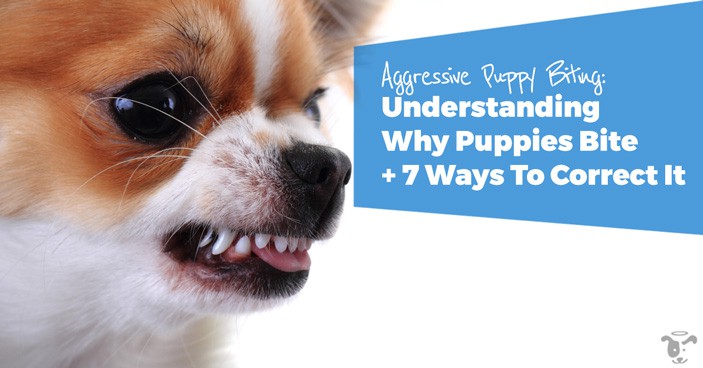
If you’re one of the puppy parents taken aback by your puppy’s sudden show of aggression, I hope that this blog can help you understand why your pet does it and the ways you can do to stop aggressive puppy biting behavior.
Key Takeaways
- Puppy biting isn’t always aggression and can be a normal part of a puppy’s exploration.
- Puppies use their mouth for observation and for play.
- Fear is one of the major factors for puppy aggression.
- Lack of socialization can push a puppy to become aggressive.
- Fear aggression can be corrected with the help of a pet coach.
- Bonding and not hitting your puppy will make them trust you even more.
- A professional, well-trained puppy coach can help you make the process much easier.
Is It Still Normal Behavior, or is it Already Puppy Biting Aggression?
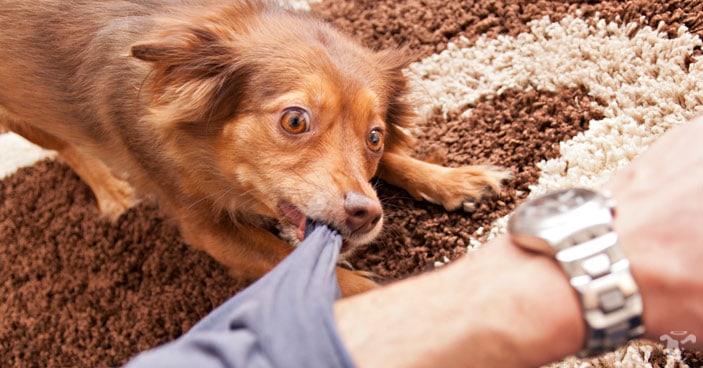
Should you immediately associate it with potential aggression when your puppy starts to bite?
The good news is that there are instances where puppy biting and mouthing are part of your puppy’s way of navigating the environment around him.
For example, puppies discover things and socialize through their mouths. They explore the feel and the texture of a toy or a slipper through nibbling, biting, and mouthing. Their playtime also includes a lot of nibbling, biting, and mouthing.
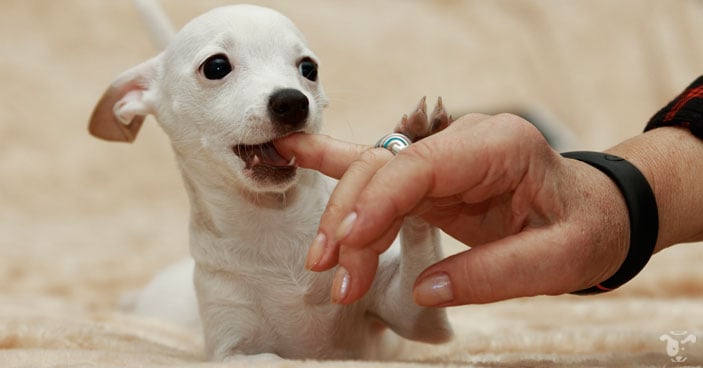
Since puppies are naturally curious and are beginning to push boundaries a little, they nibble, bite, and mouth without meaning to display aggressive quirks.
Other reasons for normal puppy biting include:
- Alleviating the discomfort caused by teething.
- Inviting play and attention with other puppies or dogs.
- Discovering the difference between food and non-edible items.
- Picking up toys and trinkets during playtime.
Why is it important to know that mouthing and biting is primarily normal? Knowing how puppies use their mouth can help you quickly identify outliers to your pet’s behavior.
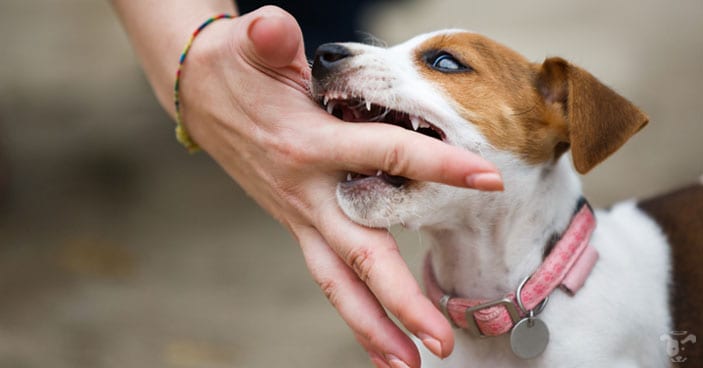
When Puppy Biting Should be a Cause for Concern
Now let’s flip the coin a little bit: it’s also possible that your puppy’s constant biting and mouthing habits are marks of the early signs of puppy aggression.
It’s a bit common. In fact, puppy aggression is one of the most common bad habits that puppy parents need to correct… fast!
Puppy parents, it’s crucial that you catch these warning signs early so you can curb the habit and correct puppy aggression before your puppy becomes a bigger dog that’s more difficult to control.
The warning signs of biting aggression in dogs include the following:
- Growling, snapping at and biting a person when they come near your puppy’s valuables like food and toys.
- Before biting, they would stiffen and stare at a person intending to bite.
- They are showing aggression and growling at little children.
- Exhibiting territorial behavior (grownling, barking, showing an aggressive stance) to people who come into your home.
- Barking non-stop
- Dominant behavior
- Snarling plus a dead-eye stare
A common misconception about aggressive puppies is that it’s innate and rooted because of rebellious, headstrong behavior.
Find out the most common myths about aggressive dog behavior in this blog.
In reality, there’s a deeper reason behind this aggression that, when understood, can change the course of how you care, bond, understand, and train your puppies.
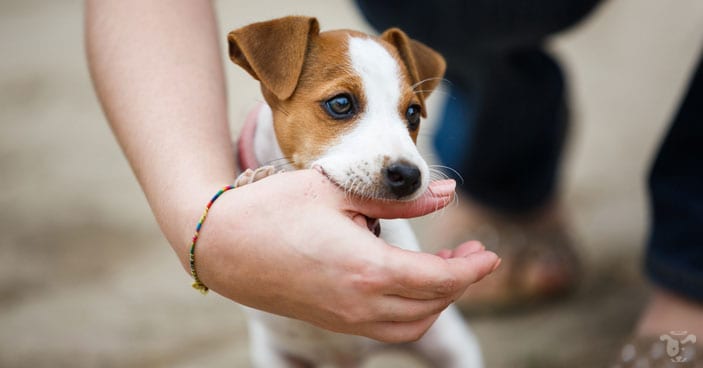
Why Do Puppies Bite: The Top Reasons for Puppy Aggression
My heart goes to puppies who have to resort to aggression!
I often tell puppy parents that understanding the reasons for dog aggression can change the way they think about raising and training their pet.
Fear, scarcity, and a lack of attention and socialization are in the heart of your dog’s struggle with aggression.
No dog comes into this world with aggression ingrained in them. Every breed comes with gentle and territorial dogs.
However, their tendency to become aggressive gets exacerbated when dogs take a cue from anxiety, fear, and worry that they will be punished.
Understanding why puppies become aggressive include knowing the heart of their aggression. Some of the top reasons for puppy aggression include the following:
Guarding Their Resources
You start to notice that your puppy becomes defensive and aggressive when you come to their space, hold their toy, or while you’re cleaning up their food and water dish. You feel as if your dog does not trust you enough!
It helps to assess whether your puppy has been exposed to a lack of food or if they have ever been punished by denying them their meals.
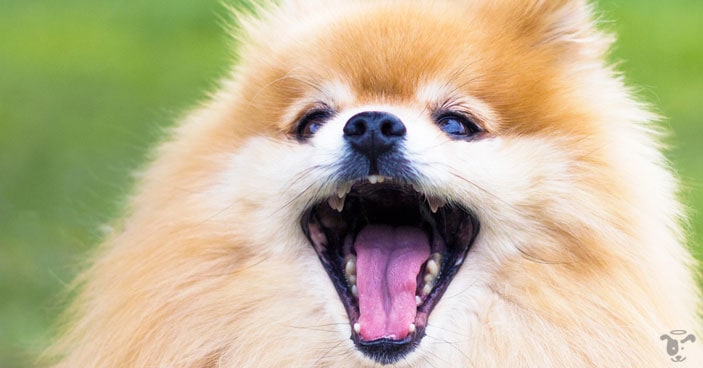
If puppies feel that they have to cling to every meal and toy because it can be taken from them anytime based on their past experiences, it becomes clearer why they have to show dominance to protect what they have.
Going Through the “Fear Aggression” Stage
Fear aggression in puppies is a form of self-defence when people, objects, or other pets appear threatening to them.
When your puppy feels threatened, it can resort to biting or loud barking to drive the threat away. Some puppies will assert dominance through growling, and through making a ready-to-pounce stance.
It helps to understand that these displays of aggression aren't permanent and that their behavior is fueled not with the intent to hurt but by fear and the need to protect themselves.
If you’re wondering if your puppy has fear aggression, you can check for the following signs:
- Rapid nips and bites
- Avoiding eye contact while trembling or panting
- Very wary of people coming near them, their crate, and their toys
- Increased anger when people come closer to their belongings
- Lunging or jumping into the owner
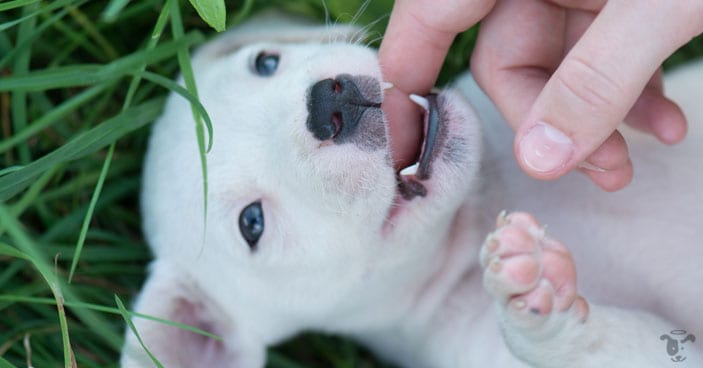
Lack of Socialization
A puppy that lacks early socialization will have more strange things to deal with compared to one that has been exposed to socialization early on.
When your puppy has to deal with everything new – new family, diet, new pet friends, new environment – everything can be overwhelming. And an overwhelmed, scared dog will use their snarling noise to shield itself from possible harm.
Signs of Lack of Socialization to Look For Include:
- Minimal play with other dogs and kids
- Cowering
- Lowering their eyes
- Lip licking
- Fidgeting when you’re out and about
- Backing up when a new pet or pet owner comes close to their vicinity
Can Puppy Biting Go Away After a While?
The teething period has already ended when puppies transition into the juvenile dog stage. Your puppy will also begin to outgrow their need for nibbling, biting, and mouthing by the 6th or 7th month. Now, there’s a little caveat to this time span.
I always tell puppy parents that just because dogs tend to get over their biting and mouthing stage does not mean that alarming puppy behaviour should not be addressed.
Dogs tend to follow what’s natural to them, and if fierce biting continues without the intervention of proper puppy training, your pet might feel that their aggression is never a problem.
Note for Parents: Your dog is like a mirror – they will follow what you show them.
Click here to know how you can use this trait to help more puppies and dogs learn.
Training puppies not to bite early on can save you from many headaches caused by your dog on people and other pets around them.
7 Ways You Can Do to Stop Puppy Biting Aggression
Never Hit Your Dog
I get what you feel. Dealing with an aggressive puppy who asserts their behavior despite your efforts to reprimand them can feel like you’re dealing with a rebellious child.
You probably feel that hitting your puppy will “teach them a lesson.”
Unfortunately, hitting, screaming, and lashing out on your little dog can backfire as it can make an already scared dog more fearful.
No matter how frustrated you are, never hit your dog.
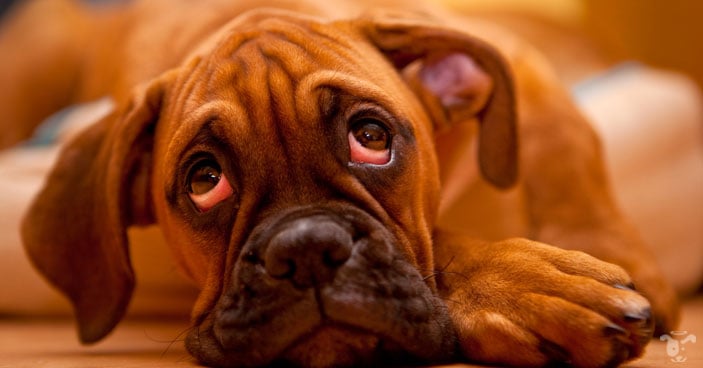
Your puppy is terrified. He needs training. For your puppy to adopt the correct behavior you’re teaching them, they must first know that they can trust you – which all boils down to how safe they feel when they’re with you.
The safer they feel, the quicker they pick up proper behavior cues from you.
Bond with Them
I always tell this to dog parents raising puppies and bigger dogs – a well-behaved pet is possible; you just have to first bond with them and make them feel secure.
Since most puppy aggression comes from fear, the antidote is making them know that they can trust you.
Bonding with puppies is the best way to let them feel safe.
Bond with them so they know you will not hit and hurt them. Give them enough affection and attention. Tell them that even though you’re more extensive, you’re not there to take their food, toys, or safe space.
A puppy that feels safe and loved will eventually show less aggression and will listen to you more.
Establishing Early On That Biting is “Game Over”
Puppies include biting during playtime. Again, this is a natural thing to do for them.
You can start puppy training your little furballs by letting them know that biting means game over. Once the puppy begins to bite, refrain from continuing any play. Doing this will signal to your puppy that biting will have consequences.
Take Time Outs
Your puppy can also nibble and bite due to excitement. If your puppy’s extreme energy is getting in the way of you training them not to bite, you can place them in their crates to help them relax.
Once the time out calms a dog, you can reintroduce proper puppy behavior once again.
Give Rewards
Little dogs are creatures of habit. Once they pick up correct behavior through your cues, they will start to act properly.
A great way to instill correct behavior among puppies is to give them treats!
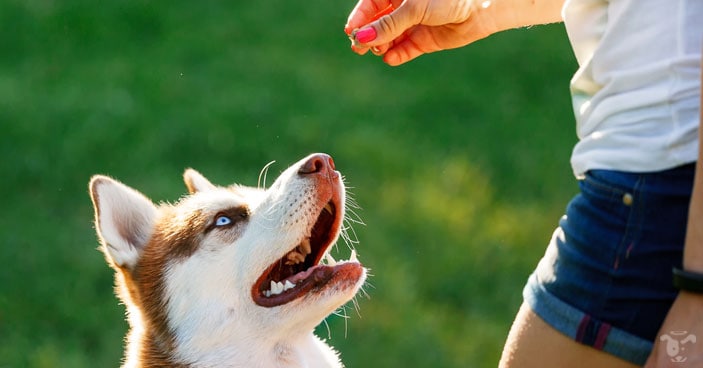
One of the ways you can do this is by offering treats every time they show less aggression around family and friends. If you’re walking outside, you can also give rewards once they are able to walk with you without stopping to nibble or bite you.
Teach Biting Inhibition
Your puppies can also learn to tone down their puppy biting aggression by playing with other puppies.
When puppies congregate, they push the limits by biting each other—some puppies yelp when bitten, signaling that the biting is too much. Most of the time, puppies stop once a sound of distress is present.
You can teach puppy biting inhibition by guiding your dog not to bite fiercely through the skin.
Teaching biting inhibition should also include reacting even to the most minimal dog bites and nibbles.
Once your dog realizes that his bite causes pain and discomfort to his owners, they usually stop and get the idea that what they’re doing – even though considered play time to them – should be stopped.
Ask the Help of an Experienced Puppy Trainer
There will come a time when puppy aggression makes you want to throw your hands in the air and say “I quit.”
I believe it’s noble when furparents strive to train their dogs on their own! It takes a lot of dedication and commitment to find the best approaches to help their dogs go easy with the biting.
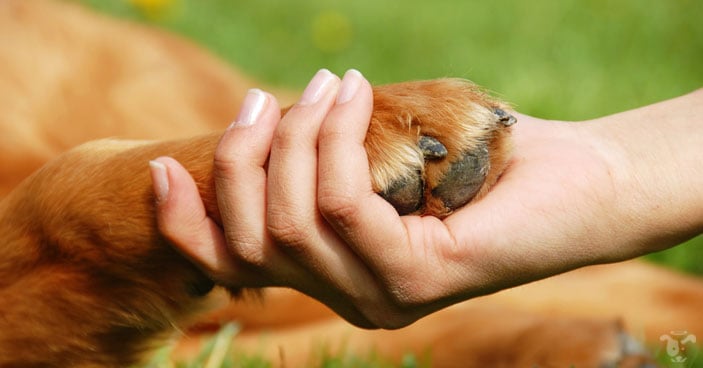
However, there will be times when doing it yourself may cost more time and money with only minimal results.
Looking into getting proper training for your puppy? Check out our Puppy Coach program!
An experienced puppy trainer, on the other hand, can:
- See the root cause of puppy aggression
- Use tested and proven methods that will save you both time and money
- Guide you properly all throughout your journey of stopping puppy biting aggression.
- Train your dog using a systemic process that makes taming aggressive puppies easier and faster.
Puppy biting and aggression can knock us a bit sideways, but they aren’t unsolvable concerns.
I hope this blog helps you understand why your puppy is doing what he’s doing and how you can switch their bad habits to good ones.
I’m rooting for you!
~ Doggy Dan



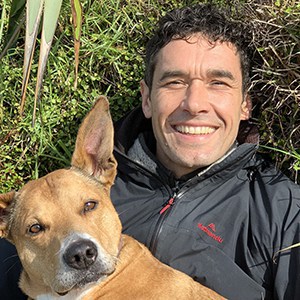
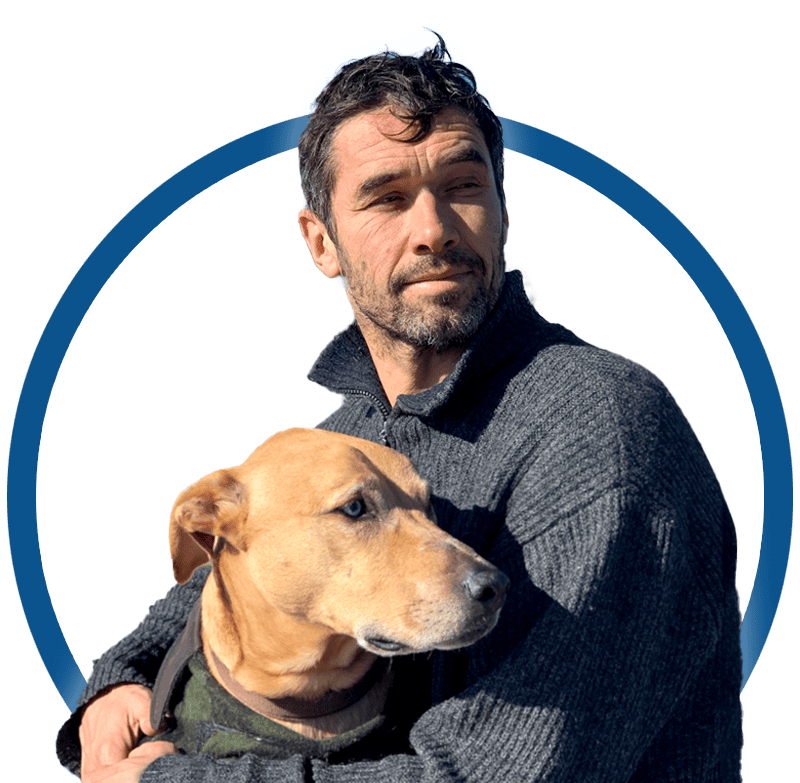
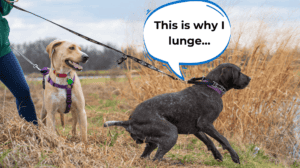
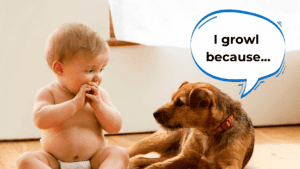
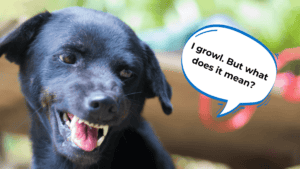
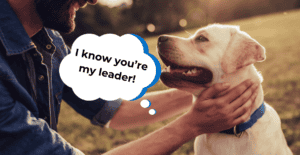
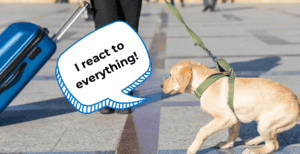
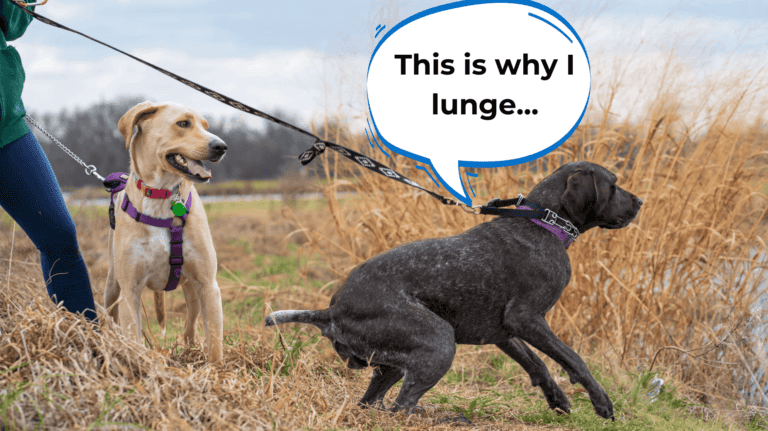
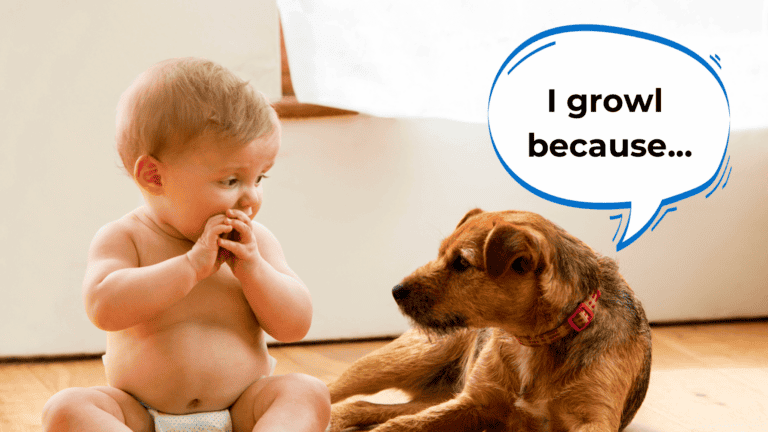
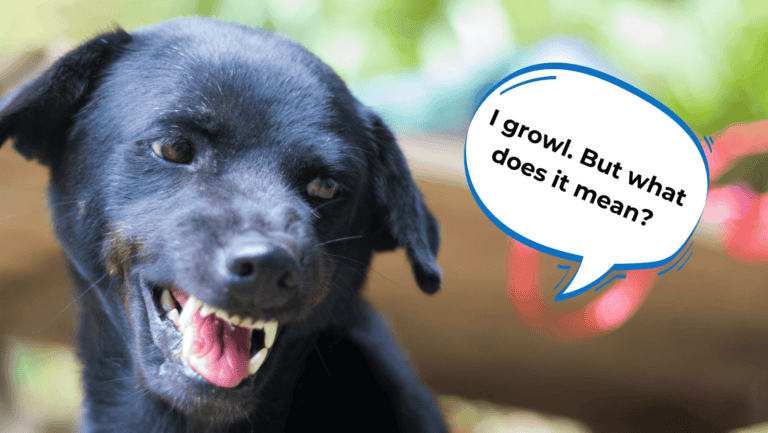

16 Responses
I completely agree with this post! I’ve been struggling with my 3-month-old puppy’s aggressive biting and this article has given me so much insight on why he’s doing it. The tips on redirecting his attention and using dental chews have already made a big difference. Thank you for sharing your expertise and helping us newbie dog owners navigate these early days with our new furry friends!
You’re very welcome
Loved this post! As a first-time puppy owner, I was worried sick about the biting and nipping. Your tips on understanding the triggers and providing alternatives have been really helpful. I’ve already started implementing the ‘gentle mouth’ exercise with my pup and it’s made a huge difference. Thank you for sharing your expertise and putting my mind at ease!
You’re very welcome! I have a full puppy course at https://theonlinedogtrainer.com/
I completely agree! I have a puppy who is still learning not to bite, and it can be so frustrating. I’ve tried some of the techniques mentioned in the post and have seen a big improvement. Thank you for sharing this valuable information!
You’re welcome. I have a complete course just for puppies. Check it out, you’ll love it! https://theonlinedogtrainer.com/
I completely agree! My puppy recently started biting me when I try to take away a toy, and I was worried that he was becoming aggressive. I’m glad I found this post because it’s giving me some much-needed insight into why puppies bite and how to correct it. I’ll definitely be trying out the 7 ways to correct it with my own pup. Thanks for sharing this informative post!
There’s a Puppy Coach program on my website that is an invaluable tool. Check it out at https://theonlinedogtrainer.com/
I just adopted a new puppy and I’m loving every minute of it, but I’m also noticing that he’s biting me a lot. I’m glad I found this post because I had no idea it was a common issue in puppies. I’ll definitely try the techniques you mentioned to correct it. Thank you for sharing!
You’re welcome. I have a whole program dedicated to puppy problems here https://theonlinedogtrainer.com/
Great article! I’m glad to see that you’re addressing this common issue. My puppy, Max, is currently going through a biting phase and it’s been challenging to manage. I’ve found that correcting him when he bites and providing him with plenty of chew toys and exercise has helped reduce the biting. However, I agree that it’s important to address the underlying reasons for the behavior, such as teething or boredom. Thanks for sharing these tips!
You’re welcome. Check out my Puppy Coach program on the website for more. You’ll love it https://theonlinedogtrainer.com
Hi our puppy is now 15 weeks old. She is generally learning really well however we have been trying different active disengagement strategies to stop her biting our clothes when over excited. It has become a game. She wants to tug the bottom of the pants, shoes, socks and Skirts must looks like a blanket and she wants to bite and tug. We are trying different ways but we have marks on our arms and holes in clothes from sharp teeth. Any other ideas? Trying isolation but not working. Now she wont go into yiur crate by herself as it become a biting time out place. Thanks Kerryn
Hi Kerryn…..biting and mouthing can be very much an attention seeking behaviour and this is why it’s important to respond correctly. Responding with a ‘no/stop it’ is still attention and it ensures the puppy will continue the behaviour. It’s also really important to respond calmly and consistently, if you add energy to the situation then it will become a game to your puppy. If your puppy is tugging at your pants then calmly remove her, but make sure you avoid speaking to her or making eye contact. If she repeats the behaviour then calmly place her in her puppy pen/crate or maybe another room……you may need to carry her there We want her to understand that this behaviour will no longer gain attention AND it will also result in her ending up on her own if she continues to do it. Puppies need time to learn to manage their impulses so it’s normal to need to repeat the consequence until this happens. If you remain consistent then your puppy will start to use more self-control. Hope that helps! Doggy Dan
May I Ask a question? Our Siberian husky is 7 1/2 months old. The other night we lost electricity for about 2 hours. During the outage, she chewed up one of my wife’s shoes. She had never exhibited this type of behavior before. Why?
Hi Michael,
A change in routine can lead to a dog feeling anxious and chewing can be a way they then try to alleviate that stress. The action of chewing releases a feel-good hormone into the dog’s system, that is aimed at helping them relax. It may also have been that in the excitement of trying to restore some lighting that your dog got a little confused by her owner’s behaviour and that may also have had a small impact. Hope that makes sense! All the Best, Doggy Dan